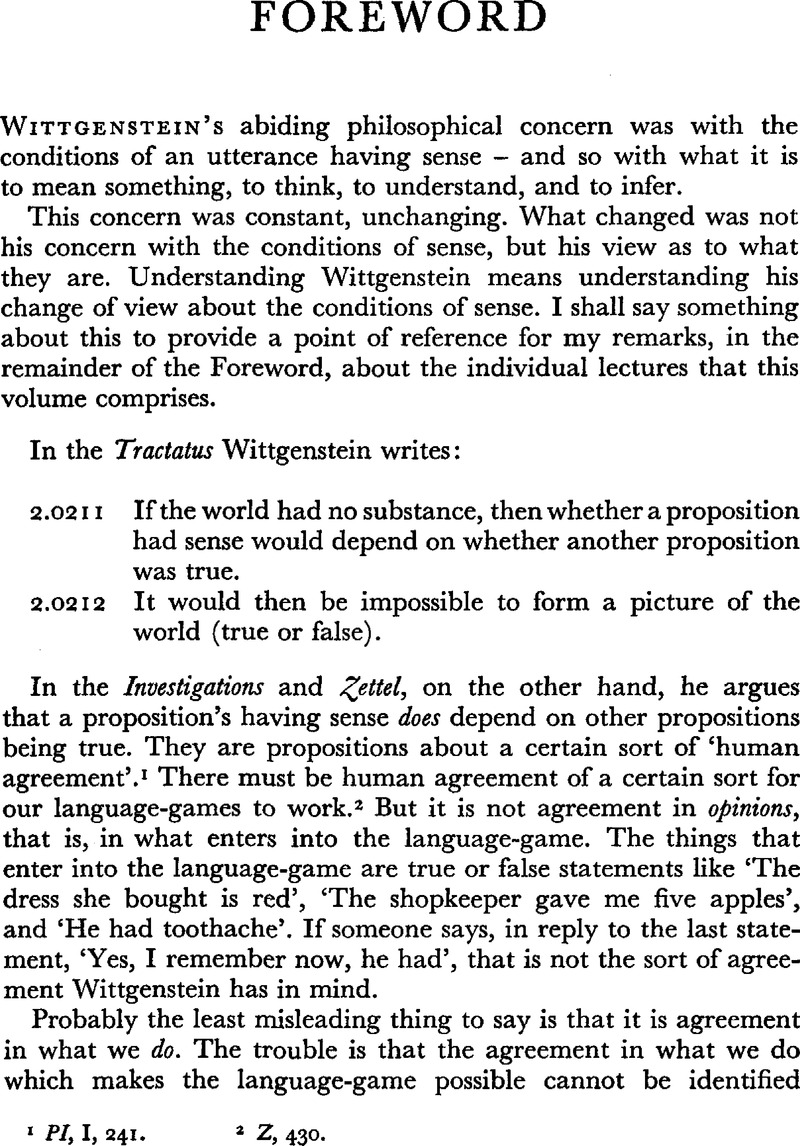No CrossRef data available.
Published online by Cambridge University Press: 08 January 2010

page ix note 1 PI, I, 241.Google Scholar
page ix note 2 Z, 430.Google Scholar
page x note 1 PI, II, xii.Google Scholar
page x note 2 PI, I, 24.Google Scholar
page x note 3 Z, 430.Google Scholar
page x note 4 Cf. Wittgenstein, , Lectures and Conversations on Aesthetics, Psychology and Religious Belief, ed. Barrett, Cyril (Oxford: Basil Blackwell, 1966), p. 58Google Scholar: ‘Why shouldn't one form of life culminate in an utterance of belief in a Last Judgment?’
page xi note 1 Critique of Pure Reason, trans. Smith, Norman Kemp (London: Macmillan, 1934), B15–16.Google Scholar
page xii note 1 The particular circumstances are ‘that he had learnt algebra, had used such formulae before’ (PI, I, 179Google Scholar). Note that having learnt algebra involves having acquired abilities shared with others who have learnt algebra.
page xii note 2 PI, I, 154.Google Scholar
page xii note 3 In PI, I, 154Google Scholar Wittgenstein says that by a ‘mental process’ he means such things as ‘a pain's growing more and less’, and ‘the hearing of a tune or a sentence’, but I think he was confused as to his own philosophical method at this point.
page xii note 4 PI, I, 305–9.Google Scholar
page xii note 5 I am drawing, here, on things I said in my review of Zettel, ‘Wittgenstein on the Myth of Mental Processes’, Philosophical Review, lxxvii (1968) pp. 350–5.Google Scholar
page xiii note 1 BB, p. 61.Google Scholar
page xiv note 1 On this and related points I am grateful to Rush Rhees for his comments on an early draft of this foreword. Whether the use I have made of them is one of which he would approve is another matter.
page xv note 1 PI, II, xii.Google Scholar
page xv note 2 TLP, 2.0212.